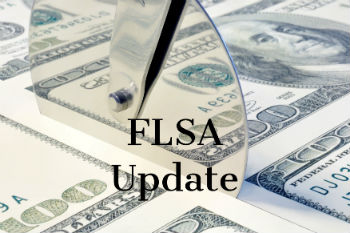 Employees in California are protected by the Workers’ Compensation Act (WCA) which governs “compensation given to California employees for injuries incurred in the course and scope of their employment.” Charles J. Vacanti, M.D., Inc. v. State Comp. Ins. Fund (2001) 24 Cal.4th 800, 810. All employers except the state must secure the payments of compensation by either carrying workers’ compensation insurance or self-insuring. In a recent case, the San Mountain Empire School District was self-insured, but had also contracted for excess policy insurance. In the case of the Mountain Empire School District, its excess insurer ran out of money.
Employees in California are protected by the Workers’ Compensation Act (WCA) which governs “compensation given to California employees for injuries incurred in the course and scope of their employment.” Charles J. Vacanti, M.D., Inc. v. State Comp. Ins. Fund (2001) 24 Cal.4th 800, 810. All employers except the state must secure the payments of compensation by either carrying workers’ compensation insurance or self-insuring. In a recent case, the San Mountain Empire School District was self-insured, but had also contracted for excess policy insurance. In the case of the Mountain Empire School District, its excess insurer ran out of money.
California law also provides for protection to both “insured and the public” through a system called the California Insurance Guarantee Association (CIGA). Fireman’s Fund Ins. Co. v. Workers Comp. Appeals Bd. (2010) 189 Cal.App.4th 101, 111-112. CIGA pays only: 1) covered claims and 2) claims for which neither a solvent insurer or self-insured employer is jointly and severally liable.


 In a purchase and sale context, California law requires the seller of residential real estate to disclose material facts affecting the value or desirability of the property, “if it is known that such facts are not known to or within the reach of the diligent attention and observation of a buyer.” Calemine v. Samuelson, 171 Cal. App. 4th 153, 161-62 (2009). A fact is material if it has an effect on the value or desirability of the property. Alfaro v. Cmty. Hous. Improvement Sys. & Planning Ass'n, Inc., 171 Cal. App. 4th 1356, 1382 (2009).
In a purchase and sale context, California law requires the seller of residential real estate to disclose material facts affecting the value or desirability of the property, “if it is known that such facts are not known to or within the reach of the diligent attention and observation of a buyer.” Calemine v. Samuelson, 171 Cal. App. 4th 153, 161-62 (2009). A fact is material if it has an effect on the value or desirability of the property. Alfaro v. Cmty. Hous. Improvement Sys. & Planning Ass'n, Inc., 171 Cal. App. 4th 1356, 1382 (2009). Recently in the news we have seen articles about people traveling with their miniature horses or their pigs. Perhaps you may be wondering why is the airline permitting the miniature horse on the plane? The answer breaks down like this: if it is a miniature horse, it is likely a service animal and if it is a pig, it is likely an emotional support animal.
Recently in the news we have seen articles about people traveling with their miniature horses or their pigs. Perhaps you may be wondering why is the airline permitting the miniature horse on the plane? The answer breaks down like this: if it is a miniature horse, it is likely a service animal and if it is a pig, it is likely an emotional support animal. In California, a landowner has no enforceable property rights to an unobstructed view. That means, you can’t force your downhill neighbor to trim their trees. However, I have seen the occasional CC&R’s from planned communities that restrict heights of trees, plantings, and structures to ensure that the homeowners can enjoy their view.In those circumstances, the restrictive covenants are strictly construed against the person seeking to enforce them. American jurisprudence favors alienability and free use of land so that will be the default legal view.
In California, a landowner has no enforceable property rights to an unobstructed view. That means, you can’t force your downhill neighbor to trim their trees. However, I have seen the occasional CC&R’s from planned communities that restrict heights of trees, plantings, and structures to ensure that the homeowners can enjoy their view.In those circumstances, the restrictive covenants are strictly construed against the person seeking to enforce them. American jurisprudence favors alienability and free use of land so that will be the default legal view. In a recent opinion, the California Court of Appeal found that after foreclosure, all of the borrower’s leases (and its waivers) were assigned to the lender, and therefore unavailable as a defense to the former owner against a creditor. Therefore, the judgment creditor was successfully able to add two new parties to the judgment as the limitation the lease no longer shielded them.
In a recent opinion, the California Court of Appeal found that after foreclosure, all of the borrower’s leases (and its waivers) were assigned to the lender, and therefore unavailable as a defense to the former owner against a creditor. Therefore, the judgment creditor was successfully able to add two new parties to the judgment as the limitation the lease no longer shielded them. In the recent case of Southern California Edison Company v. Severns, the written easement described a 4 foot wide easement for the placement of five electrical power poles. The instrument went on further to provide that the grantee should have “free access” to maintain the electrical equipment. This created dispute between the grantor and the utility company because of the unspecified routes the utility company would take on the grantor’s property to access the easement. The court determined that the easement was in fact a “floating easement”.
In the recent case of Southern California Edison Company v. Severns, the written easement described a 4 foot wide easement for the placement of five electrical power poles. The instrument went on further to provide that the grantee should have “free access” to maintain the electrical equipment. This created dispute between the grantor and the utility company because of the unspecified routes the utility company would take on the grantor’s property to access the easement. The court determined that the easement was in fact a “floating easement”. California’s Fourth Appellate District came down with an unsurprising opinion that because a real estate broker has a duty to their principal to share information he or she possesses that will adversely affect the value of her property, an expert opinion is not required to establish breach of that duty.
California’s Fourth Appellate District came down with an unsurprising opinion that because a real estate broker has a duty to their principal to share information he or she possesses that will adversely affect the value of her property, an expert opinion is not required to establish breach of that duty. Continuing the trend in California caselaw, an appellate court concluded that no, the trustee does not have duties beyond the deed of trust itself and the governing statutes.
Continuing the trend in California caselaw, an appellate court concluded that no, the trustee does not have duties beyond the deed of trust itself and the governing statutes. It is well-settled California law that land owners are required to maintain land in their possession and control in a reasonably safe condition. California courts look to what are called the “Rowland factors” to evaluate if a duty is owed beyond the principles of Civil Code section 1714:
It is well-settled California law that land owners are required to maintain land in their possession and control in a reasonably safe condition. California courts look to what are called the “Rowland factors” to evaluate if a duty is owed beyond the principles of Civil Code section 1714: In the recent case of RANCH AT THE FALLS, LLC v. Keith O’Neal et al., a ranch owner tried to establish prescriptive or equitable easement rights along private roads to reach her ranch. Ms. Hart prevailed at the trial court level but was not so fortunate on appeal. California’s second Appellate District concluded that Ms. Hart had failed to meet the hostility requirement to establish prescriptive easement.
In the recent case of RANCH AT THE FALLS, LLC v. Keith O’Neal et al., a ranch owner tried to establish prescriptive or equitable easement rights along private roads to reach her ranch. Ms. Hart prevailed at the trial court level but was not so fortunate on appeal. California’s second Appellate District concluded that Ms. Hart had failed to meet the hostility requirement to establish prescriptive easement. The Ninth Circuit has expanded the scope of claims that are subject to arbitration clauses to include racial discrimination claims under 42 U.S.C. Section 1981. Lambert v. Tesla, 2019 U.S. App. LEXIS 14591.
The Ninth Circuit has expanded the scope of claims that are subject to arbitration clauses to include racial discrimination claims under 42 U.S.C. Section 1981. Lambert v. Tesla, 2019 U.S. App. LEXIS 14591. In a case of first impression, the Second Appellate District concluded that assuming fraudulent intent, the UVTA (formerly the Uniform Fraudulent Transfer Act) applies to premarital agreements which treat after marriage earnings and assets as separate property.
In a case of first impression, the Second Appellate District concluded that assuming fraudulent intent, the UVTA (formerly the Uniform Fraudulent Transfer Act) applies to premarital agreements which treat after marriage earnings and assets as separate property. We are still seeing the effects of the subprime meltdown ripple through the appellate courts. In the case of Taniguchi v. Restoration Homes, what appears on first blush to be a straight forward analysis that under California law borrowers can stop a foreclosure sale by reinstating the loan had a twist.
We are still seeing the effects of the subprime meltdown ripple through the appellate courts. In the case of Taniguchi v. Restoration Homes, what appears on first blush to be a straight forward analysis that under California law borrowers can stop a foreclosure sale by reinstating the loan had a twist. U.C.C Section 9-319(a) grants a consignee ownership rights in consigned goods. Does it also apply to proceeds from the sale of those goods? In the recent decision of In Re Pettit Oil Company, the Ninth Circuit said that it does, holding that proceeds from goods held by a consignee at the time of a bankruptcy filing are subject to the perfection and priority rules in the Bankruptcy Code.
U.C.C Section 9-319(a) grants a consignee ownership rights in consigned goods. Does it also apply to proceeds from the sale of those goods? In the recent decision of In Re Pettit Oil Company, the Ninth Circuit said that it does, holding that proceeds from goods held by a consignee at the time of a bankruptcy filing are subject to the perfection and priority rules in the Bankruptcy Code. This week the Supreme Court issued their opinion in Obduskey v. McCarthy & Holthus LLP. In 2007, Obduskey bought a house in Colorado, borrowed $330k from a lender and secured repayment of the loan with a mortgage (or deed of trust) against the house. In 2014, Wells Fargo hired the law firm of McCarthy & Holthus LLP to commence foreclosure as the borrower was in default.
This week the Supreme Court issued their opinion in Obduskey v. McCarthy & Holthus LLP. In 2007, Obduskey bought a house in Colorado, borrowed $330k from a lender and secured repayment of the loan with a mortgage (or deed of trust) against the house. In 2014, Wells Fargo hired the law firm of McCarthy & Holthus LLP to commence foreclosure as the borrower was in default. Neighbor disputes over shared boundaries can arise over a misplaced fence, a shared driveway, or water rights. These claims are heavily fact-based and often the accuracy of the modern survey can only be overcome with meeting the elements for adverse possession or prescriptive easement.
Neighbor disputes over shared boundaries can arise over a misplaced fence, a shared driveway, or water rights. These claims are heavily fact-based and often the accuracy of the modern survey can only be overcome with meeting the elements for adverse possession or prescriptive easement. A new ruling from California’s 6th Appellate District clarifies what appeared to be a gap in what is permitted for post-judgment document discovery on third parties.
A new ruling from California’s 6th Appellate District clarifies what appeared to be a gap in what is permitted for post-judgment document discovery on third parties. The United States Department of Labor issued new regulations today affecting the white collar exemptions to the overtime wage and hour laws under FLSA. (The Fair Labor Standards Act.) DOL apparently set a new threshold amount for claiming the exemption. Workers must now make $35,308 per year in order to claim any of the white collar exemptions. The effect of the new overtime rules, issued today, March 7, 2019, is unclear as a number of groups have indicated that they intend to take legal actions related to these new regulations.
The United States Department of Labor issued new regulations today affecting the white collar exemptions to the overtime wage and hour laws under FLSA. (The Fair Labor Standards Act.) DOL apparently set a new threshold amount for claiming the exemption. Workers must now make $35,308 per year in order to claim any of the white collar exemptions. The effect of the new overtime rules, issued today, March 7, 2019, is unclear as a number of groups have indicated that they intend to take legal actions related to these new regulations. The California Corporations Code requires founders to follow specific procedures and file specific forms before the entity comes into existence. For example, articles of incorporation must be filed with the Secretary of State in order to create a corporation. In contrast, a general partnership can be formed without any document at all.
The California Corporations Code requires founders to follow specific procedures and file specific forms before the entity comes into existence. For example, articles of incorporation must be filed with the Secretary of State in order to create a corporation. In contrast, a general partnership can be formed without any document at all. After the subprime meltdown, sweeping legislation was enacted in an effort to protect Californian homeowners. HBOR cases have since trickled in over the last seven years with a new one regarding fees for borrowers who successfully halt a
After the subprime meltdown, sweeping legislation was enacted in an effort to protect Californian homeowners. HBOR cases have since trickled in over the last seven years with a new one regarding fees for borrowers who successfully halt a 




